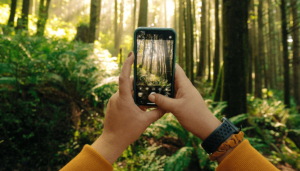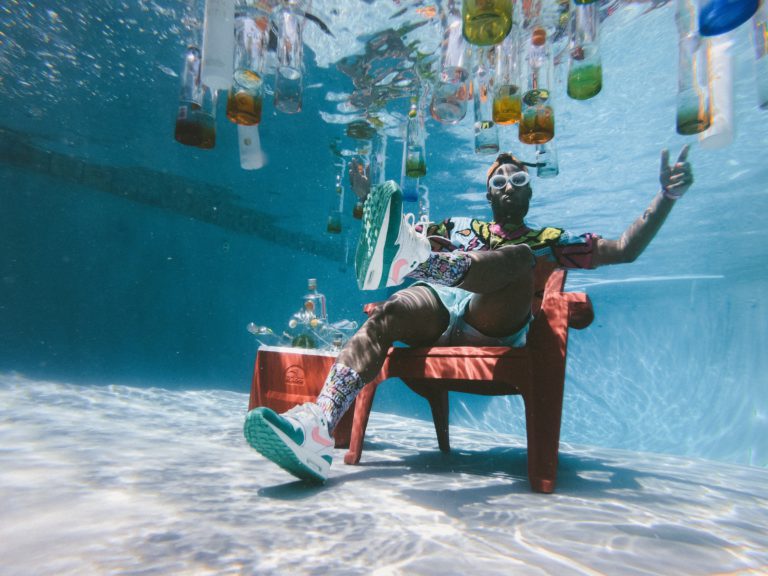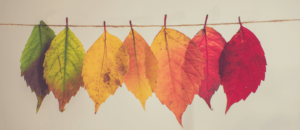
Best Allergy Tracker App 2025
Allergy Tracker App The best apps for tracking allergies in 2025 Published on March 31st 2025 Written by Jesse Driessen Living with allergies—whether triggered by
Published on October 4th 2022.
Written by Jenna Farmer.
Chapters.
1. Affect on mental health
2. For people with anxiety
3. Alcohol as a trigger
Whether it’s a glass of wine after a stressful day or a few beers with your co-workers, many of us drink alcohol on a regular basis. In fact, around 60% of Americans drink alcohol, consuming just over 3 alcoholic drinks a week on average. But does drinking alcohol impact those of us with anxiety differently?
Whilst many of us drink in moderation, we may notice a relationship between our anxiety and alcohol. Some people may gravitate to drinking more alcohol in periods of poor mental health whilst others may find their anxiety worsening when they drink it. According to research, those who drink alcohol are more likely to develop mental health issues and those with severe mental illness may be at more risk of alcohol problems
But what is the actual relationship between alcohol and anxiety? How does alcohol affect people with anxiety and can alcohol actually cause anxiety? Let’s find out…

Photo by Jakob Owens on Unsplash
Alcohol impacts our physical and mental health in lots of different ways. First up, it’s a diuretic; meaning it makes you pee more and can dehydrate you. Why is this important? Well, it turns out being dehydrated is a lot more common than you think: It’s thought that three-quarters of Americans are dehydrated and dehydration is often worse in people with poor mental health. This is because those who have a low or poor mood may often neglect basic tasks such as eating and drinking. There are also certain health conditions – such as diabetes or digestive issues – which put you more at risk of dehydration too.
If you’re already at risk of dehydration, alcohol may worsen the problem. Some studies have found a link between how hydrated you are and anxiety. One found that drinking more water and being more hydrated decreases your risk of anxiety.
But why else might alcohol not be ideal for your mental health? Well, anxiety also impacts your blood sugar levels.
“It can cause drops in blood sugar, which leads to adrenaline and cortisol being released; creating some feelings of anxiety,” explains Nutritionist Hannah Hope.
Ever find you have less of a hangover if you drink with a full meal? Well, this is why. If you’re going to drink, it’s often recommended to drink a glass of alcohol with a full meal to help slow this blood sugar release down.
What about if a glass of wine or a few beers is your go-to for feeling more relaxed? It does help reduce the time it takes us to actually fall asleep but this relaxed feeling doesn’t always last for very long; and we may then feel more anxious after the alcohol wears off.
“Initially, you may feel relaxed as alcohol is a sedative and you can feel that anxiety levels have dropped, but Alcohol can change levels of serotonin and anxiety can feel worse after you have stopped drinking it,” explains nutritionist Hannah Hope. Whilst you might drift off more quickly, you might notice a more restless night, since alcohol can also cause you to wake up more often.
A big problem arises when people then try to drink more alcohol (and even become dependent) to stop their anxious feelings.
Science suggests there are a few reasons why your anxiety may be worsened by alcohol and why it is not a great idea to drink it.
However, that doesn’t mean you can never have a glass of wine again. Some people with anxiety may drink in moderation with no problem but it’s really important to be aware of the impact alcohol has on your mood.
Either way, frequently drinking alcohol when you’re prone to anxiety is really not a great idea.
“Long-term alcohol consumption can increase the risk of developing an anxiety disorder as it reduces GABA tone, a calming neurotransmitter in the brain. Alcohol also suppresses Glutamate, an excitatory neurotransmitter, but the body responds to this by making more Glutamate, and this can cause feelings of anxiety.” adds Hannah Hope.
If you find yourself relying on alcohol to feel less anxious or your anxiety levels increasing after you’ve finished drinking, it’s a sign to have a chat with your doctor who will be able to recommend other ways to cope with your anxiety.
Otherwise, we recommend tracking whether alcohol (or certain types of it) triggers your anxiety to find the balance that works for you.
The easy answer would be to say stop drinking it. But we know that sometimes life doesn’t work like that-whether that’s birthday parties, Christmas or just feeling like you need a glass of wine after a stressful week. You can, however, take active steps to cut down on the amount you drink.
“To ameliorate these feelings, try reducing the amount you drink or stop altogether.” If you can’t do that, spacing out drinks can really reduce the impact alcohol may have. “Make sure you are drinking a glass of water with each alcoholic drink, drinking with food or slowing down how fast you are drinking alcohol.” says Hannah Hope.
Being more aware of your mental health and triggers is really important to understand why you’re drinking. If you know you’re likely to be anxious today (or are in the middle of an anxiety attack) and that’s why you’re heading to the store to buy beer, then look for alternative coping strategies to manage your anxiety instead. These could include exercise, getting out in the fresh air or talking to a loved one.
If you find yourself drinking socially or because you just like the taste, it’s worth pointing out that there are a TON of amazing alcohol-free drinks on the market (in fact, the market is booming: sales of non-alcoholic wine and beer were up by $219 million last year) which offer all of the taste and none of the impacts alcohol brings.
Finally, if you notice a relationship between your anxiety and alcohol but are unable to stop drinking, it is important you seek medical help from a doctor. If you’re in the UK, you can visit The National Institute of Alcohol Abuse and Alcoholism.
So, can alcohol cause anxiety? Only you know how drinking impacts your anxiety but there are several reasons why moderating how much alcohol you drink is a good idea for your physical and mental health. If you’re not sure if alcohol is a trigger for your anxiety, you could also use the Bearable app to monitor your alcohol intake and its impact on your symptoms & mood.
Note. The information provided is for educational purposes only, and is not a substitute for professional medical advice. Consult a medical professional or healthcare provider if you’re seeking medical advice, diagnoses, or treatment.
Help someone out by sharing this article with them …

Allergy Tracker App The best apps for tracking allergies in 2025 Published on March 31st 2025 Written by Jesse Driessen Living with allergies—whether triggered by

Seasonal Affective Disorder and Depression Published on November 5th 2024Written by Jesse Driessen What is Seasonal Affective Disorder? Approximately 15 million Americans are thought to

PoTS App The top 5 apps for tracking PoTS in 2024 Published on October 24th 2024Written by Jesse Driessen Living with Postural Orthostatic Tachycardia Syndrome